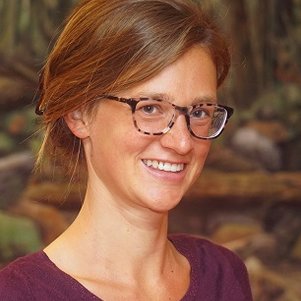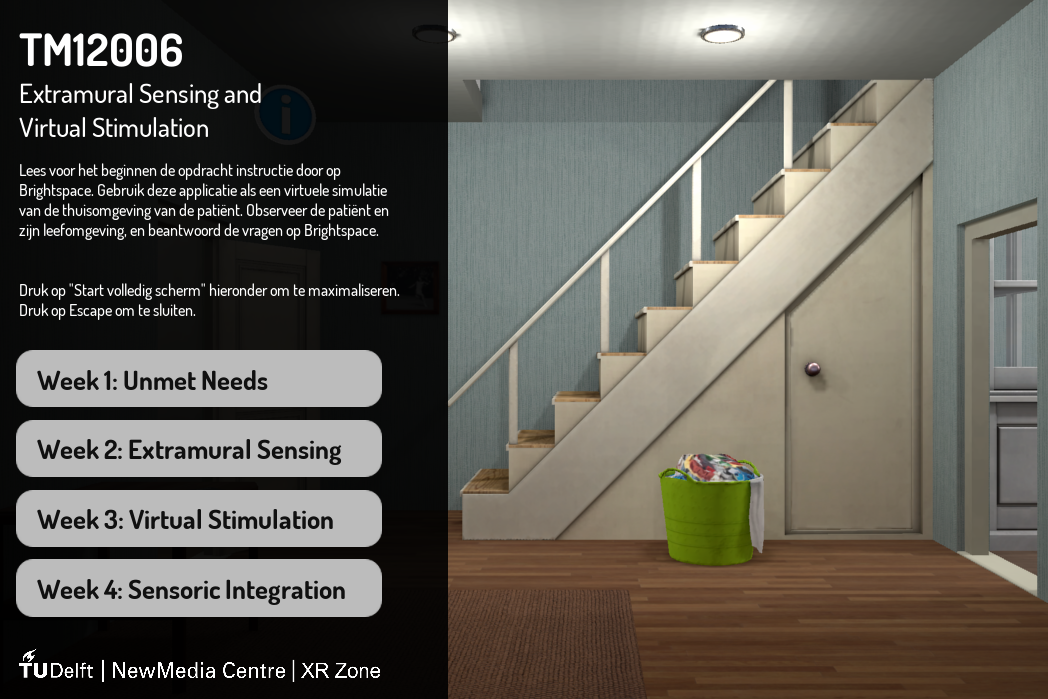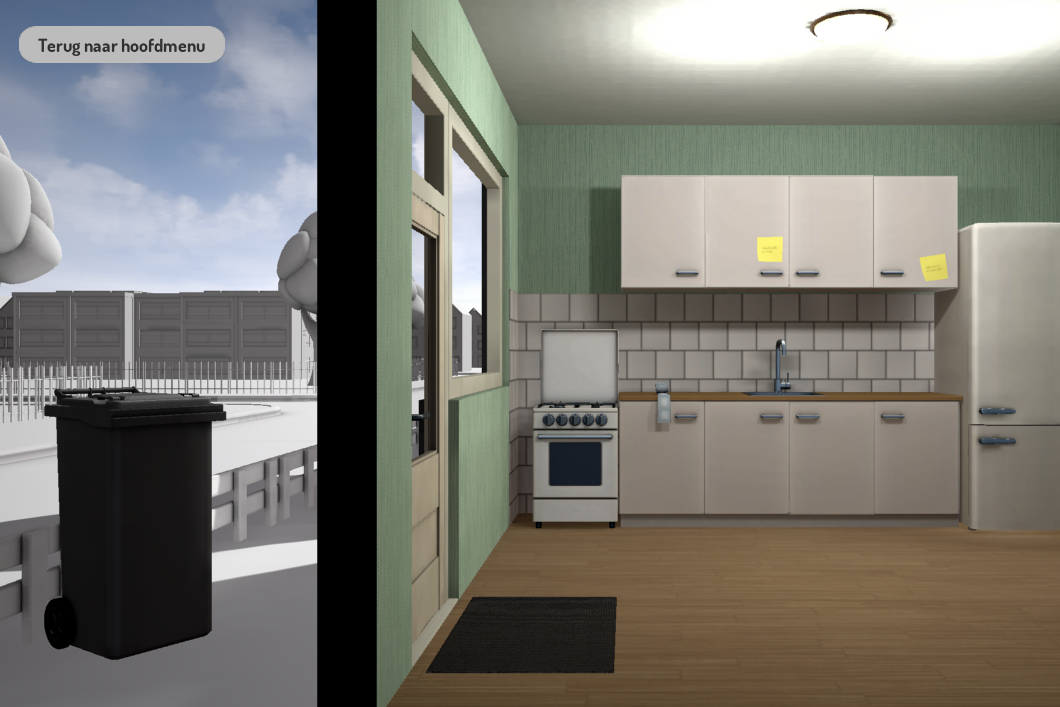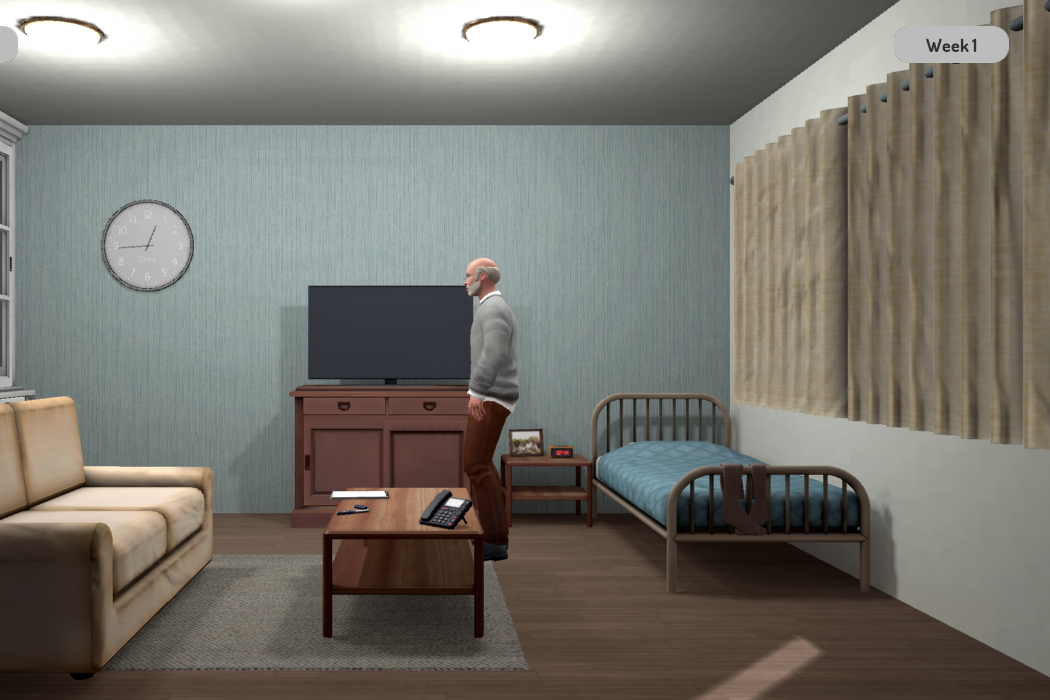Marjon Stijntjes voted best 3mE educator 2022-2023
Technical physician, Marjon Stijntjes, has been voted best educator of 3mE by the students. They praised her for the clear structure of her teaching and innovative teaching methods. Among other things, Stijntjes develops and teaches the course Extramural Sensing and Virtual Stimulation as part of the master’s programme in Technical Medicine.
Stijntjes certainly didn’t expect it. ‘I was taken completely by surprise,’ she said. ‘This is the best kind of compliment and recognition you can get as an educator. It’s a great feeling to know you have really connected with your students and inspired and motivated them.’ Stijntjes was quick to add that you don’t teach a subject on your own, however. ‘For me, the educator-of-the-year award is above all a subject-of-the-year award. That’s why I would like to thank everyone who played a part in this.’
No lectures or exams
Student reviews consistently praise Stijntjes’ approachability, enthusiasm and clarity. She’s been hailed as a pioneer due to her innovative teaching methods. For example, the course doesn’t include lectures or written exams. Instead, Stijntjes uses a virtual environment and expert panels. ‘Lectures are a fairly passive form of learning. Moreover, the focus can be strongly steered in a certain direction at times. We find that the use of a virtual environment and expert panels makes the transfer of knowledge much more dynamic and inspiring.’ Students echo her sentiment, expressing appreciation for her teaching style: ‘Engaging with healthcare professionals on the expert panels brings into sharp focus the practical applications and context of working as a clinical technologist,’ says one student.
Recreating the patient’s home situation
The Extramural Sensing and Virtual Stimulation course gives students an insight into what life is like for a patient at home. ‘Not everyone is familiar with this. That’s why we use a virtual home environment, in which we simulate a patient's life.’ The students act as detectives to unravel exactly what’s going on. ‘This allows them to understand that patients are first and foremost individuals with their own lives and therefore have needs that may not always align with a purely medical perspective.’ Each week, they’re offered additional information in the virtual environment: how to measure how someone is doing at home, how to intervene or provide treatment remotely and how to coordinate this properly. ‘As a result, they develop a real tech-med mindset,’ she says.
No grades
When designing her course, Stijntjes pays particular attention to students’ motivation. ‘I think it’s very important that students are intrinsically motivated and that they learn where this motivation comes from. This is crucial for the internships they start the following year and for their future in general.’ Stijntjes tries to trigger this intrinsic motivation by focusing on the learning stages that students go through, rather than giving them a grade. ‘This sparks a genuine interest in the students to improve themselves rather than focus solely on getting the highest possible grades.’
Each week culminates in a feedback and feedforward session. By the end of the course, students are required to have attained a certain learning stage. ‘Students become so motivated by this kind of teaching that they always want to incorporate this feedback and no longer talk about grades at all but about which learning stage they’re in and how they can develop from there,’ says Stijntjes.
I think it’s very important that students are intrinsically motivated and that they learn where this motivation comes from.
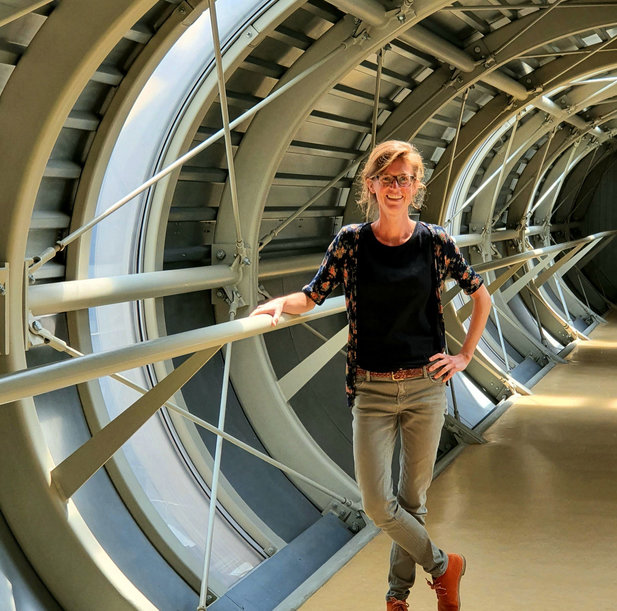
Always looking to improve
Students appreciate Stijntjes’ organised approach to teaching, with clear learning objectives. They also commend her continuous quest to improve her teaching methods.
‘Following last year’s feedback, we actually changed everything and introduced a point-and-click game in collaboration with TU Delft’s NewMedia Centre. The advantage of such an environment is that you introduce students to a range of topics in an objective way. We’ve made a broad inventory of these topics in the country, which also aligns the course with international standards within this rapidly developing field,’ says Stijntjes.
Career so far
Stijntjes studied Technical Medicine at the University of Twente. ‘I did my graduation project in collaboration with TU Delft and LUMC. That’s how I got involved in the Clinical Technology programme, which was still being set up here at the time. In fact, I was involved in the study programme from the very beginning and created or revised many new teaching modules. That’s the aspect of teaching that I enjoy so much.’ She also mentors students during their internships in the Department of Rehabilitation Medicine at LUMC.
In the future, Stijntjes plans to continue refining her teaching practices. ‘We’re brimming with ideas. The beauty of this concept is that it motivates you as a teacher. It’s incredibly fulfilling to integrate students’ suggestions during the course into the virtual environment. Or to see students actually interact with the patient and observe the impact of their proposed “tech-med solutions”.’
Dear TU Delft educator
Every year, the three student associations, Variscopic, Froude and Leeghwater, choose the best 3mE educator based on surveys completed by students. The winner then competes for the prize of best overall educator at TU Delft.
